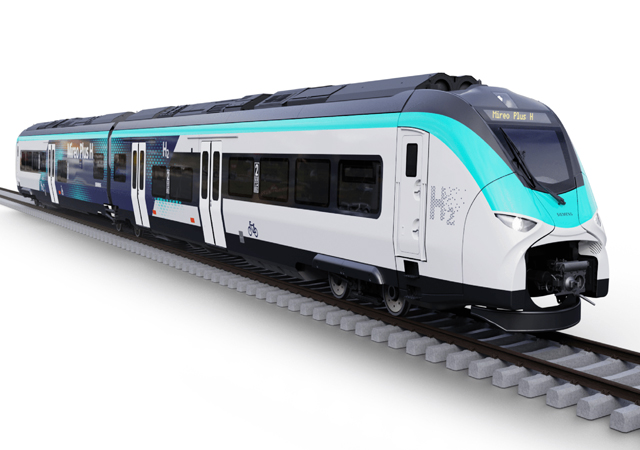

The McKinsey Technology Council has conducted a data-driven analysis of 3,500 industrial companies specialising in autonomous driving, connectivity, electrification, and shared mobility. The analysis focuses on ten cross-industry trends, including next-generation software development, quantum computing, and Web3.
About 20 per cent of the businesses analysed fall into this category, with most focusing on innovations related to applied AI. The ten tech trends already have momentum, but there is an expectation of even more disruption in the near future as more companies focus on these areas.
As this number increases, there could be more emerging innovative products and services that transform vehicles, provide consumers with new mobility options, and improve revenues.
These innovations could enhance every step of the value chain, including engineering, life cycle services, logistics, manufacturing and production, marketing and sales, R&D, procurement, and product development.
Companies serving the automotive market, including those in cloud computing, engineering, and semiconductors, may also find new opportunities as the ten trends accelerate, according the analysis.
TECH TRENDS DRIVING CHANGE WITHIN THE MOBILITY SECTOR
The mobility revolution is rapidly advancing, with scooters and shared e-bikes becoming common in cities. A recent survey revealed that 46 per cent of respondents are open to replacing their private vehicles with other transportation options over the next ten years, revealed McKinsey analysis.
Cars are also evolving, with EVs becoming more sophisticated and autonomous-driving capabilities attracting major investment. Tech advances are driving these changes, easing the transition to more sustainable and inclusive forms of transport.
Ten tech trends cited in the McKinsey Technology Council report include advanced connectivity, applied AI, cloud and edge computing, generative AI, immersive-reality tech, industrialisation of machine learning, next-generation software development, quantum tech, trust architecture and digital-identity tools, and Web3.
Of the 20 per cent of companies working on these trends, many have secured investment to develop their solutions, with total funding above $200 billion. 64 per cent are working on applied-AI applications or tech enabled by applied AI, making this tech trend the leader.
However, some technologies are more relevant to specific ACES trends than others, such as Web3 tech, which is most commonly used in shared mobility use cases and less frequently in autonomous driving companies.
The number of companies working on these tech trends could rise significantly due to growing consumer demand for innovative products and increased pressure to optimise internal operations.
INNOVATION BY REGION
A geographic analysis revealed that US-based companies are most likely working on one or more of the top five tech trends, with applied AI accounting for 33 per cent of companies in this field. However, the analysis may underestimate China's contribution in some categories, as the enterprise database did not include all Chinese companies. The regions with the most companies focusing on ACES trends and digital solutions are likely to play a greater role in determining future mobility evolution.
APPLIED AI AND ITS TRANSFORMATIVE IMPACT
The study examines applied AI, the most popular tech among the ten trends examined, as it is poised to disrupt various aspects of the mobility ecosystem. Applied AI enhances processes, enables automation, and addresses long-standing pain points. It is used in engineering and R&D to create virtual worlds for training autonomous driving algorithms.
AI algorithms can identify weaknesses in current models and create thousands or millions of additional scenarios for testing. Developers can create additional scenarios instead of updating software if an autonomous vehicle fails a virtual test, saving time and money. The algorithms can test AV performance for both mundane and uncommon events, such as pedestrians stepping in front of the vehicle.
Procurement: As climate change accelerates, OEMs are using applied AI to identify environmental, social, and governance risks along the supply chain. For instance, algorithms can analyze news items about suppliers to identify potential problems, such as a history of pollution or recent scandals involving corruption, much more quickly and thoroughly than a human can. Improving sustainability might appeal to car buyers, since a recent consumer survey showed that 70 per cent of respondents considered sustainable manufacturing to be an important consideration during vehicle purchase. In the future, AI may also help companies forecast risks more accurately and proactively suggest improvements, such as using more sustainable resources.
Manufacturing: By using vision cameras, lidar, and radar in combination with applied AI, OEMs have improved quality control during manufacturing. For instance, one leading automotive manufacturer is leveraging AI-controlled robots to handle individual vehicle processing while maintaining rigorous quality standards. In the surface inspection phase, an advanced system uses specialised tech that projects black-and-white patterns onto the vehicle’s surface. This technique allows cameras to scan and identify even the most minor variations in reflective paintwork. The tech has been so successful for the manufacturer that lead times have decreased without any change in quality.
Marketing and sales: Companies can use applied AI to identify customers who are at risk of being lost to a competitor and then create incentives to increase their satisfaction, potentially reducing churn and decreasing costs. Beyond customer retention, companies hope to use the tech to improve customer experience and increase their customers’ loyalty to their specific products and brands.
Life cycle services: OEMs that incorporate applied AI into vehicles’ onboard systems can analyze consumers’ infotainment preferences and then make personalised recommendations. Additionally, a consumer survey has revealed that about 40 per cent of respondents are very interested in personalised, real-time recommendations from navigation systems that are familiar with their driving patterns.
OEMs are increasingly investing in automated processes, with a McKinsey survey showing that automation spending will account for over 30 per cent of their companies' capital expenditures over the next five years.
About 8 per cent of automotive sector respondents believe a five-year investment in automation would total over $500 million. AI-enabled automation could improve workplaces by bridging labor gaps and taking on less desirable tasks, such as using physical robots to complement human labor, concluded the research.
*Researched by Ani Kelkar, Timo Möller, and Felix Ziegler from McKinsey & Company.

